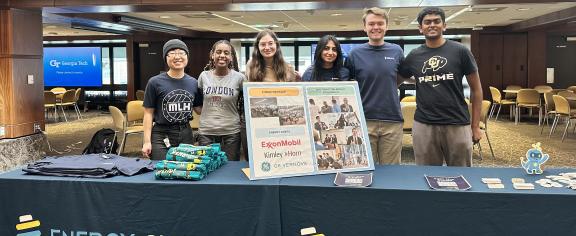2026-01-29
Georgia Tech researchers say HPC and artificial intelligence (AI) advances this year are poised to improve how people power their homes, design safer buildings, and travel through cities.
2026-02-16
EnergyHack@GT, Georgia Tech’s second annual student-run energy and sustainability hackathon, took place over the weekend of Jan. 23 – 25, 2026.
2026-02-03
Afi Ramadhani, a graduate student in economics and a student affiliate of Georgia Tech’s Energy Policy Innovation Center, has won a prize for the best research paper from the School of Economics.
2025-12-16
The study links energy insecurity to significantly higher rates of anxiety and depression in U.S. households.
2025-12-11
Divan, Raychowdhury Named National Academy of Inventors Fellows
2025-11-06
Countries around the world have been discussing the need to rein in climate change for three decades, yet global greenhouse gas emissions – and global temperatures with them – keep rising.
2025-11-01
The Strategic Energy Institute and the Energy, Policy, and Innovation Center at the Georgia Institute of Technology have announced the recipients of this year’s James G. Campbell Fellowship and Spark Awards.
2025-09-26
Georgia Tech researchers analyze seasonal differences of SO₂ and sulfate concentrations in the atmosphere over decades to determine the long-term impact of sustained air quality control efforts.
2025-09-16
Scientists team up to better understand how certain types of air pollution increase the risk of developing dementia.
2025-09-16
A new study is unearthing how and why peatlands are producing carbon dioxide and methane.









